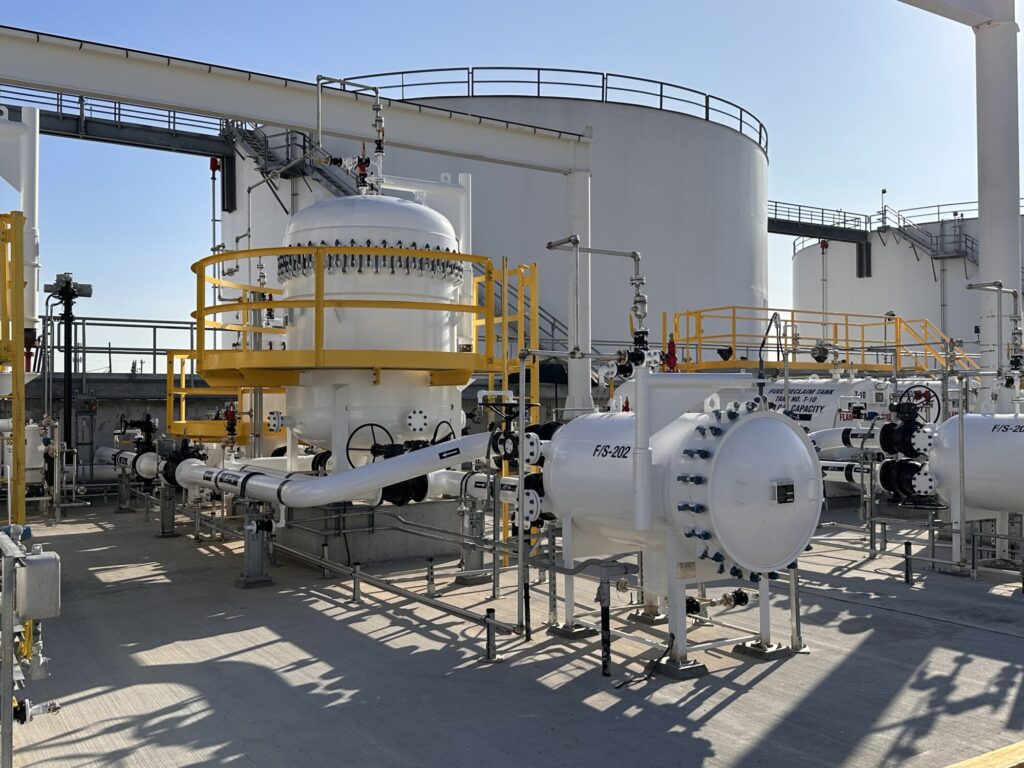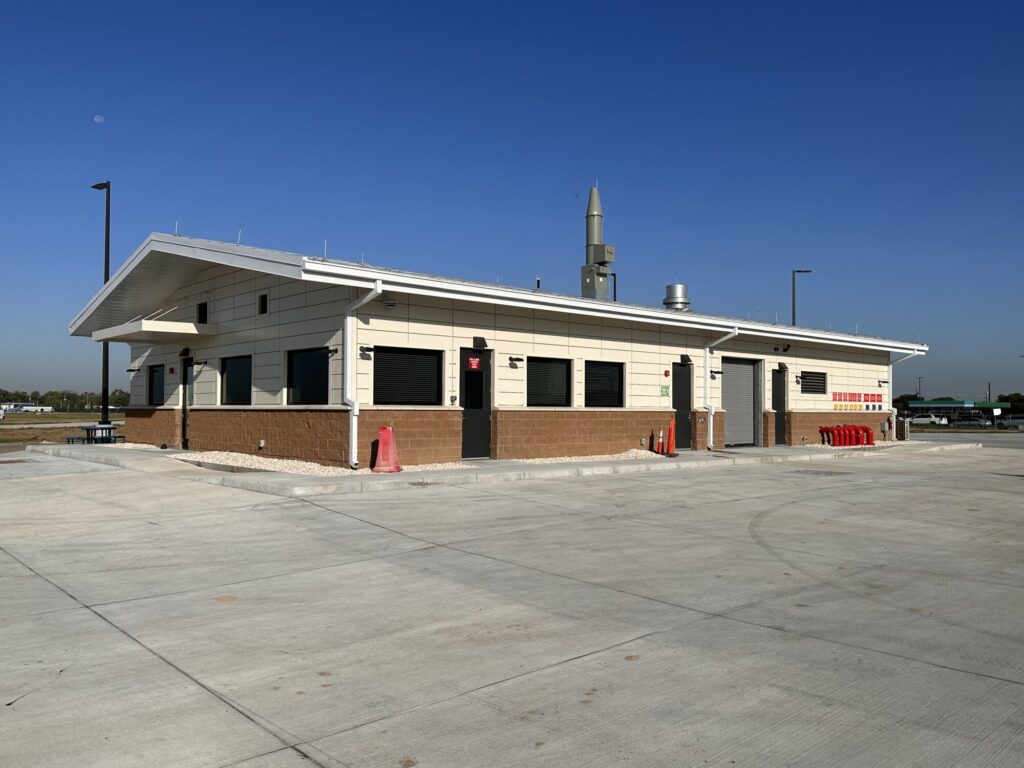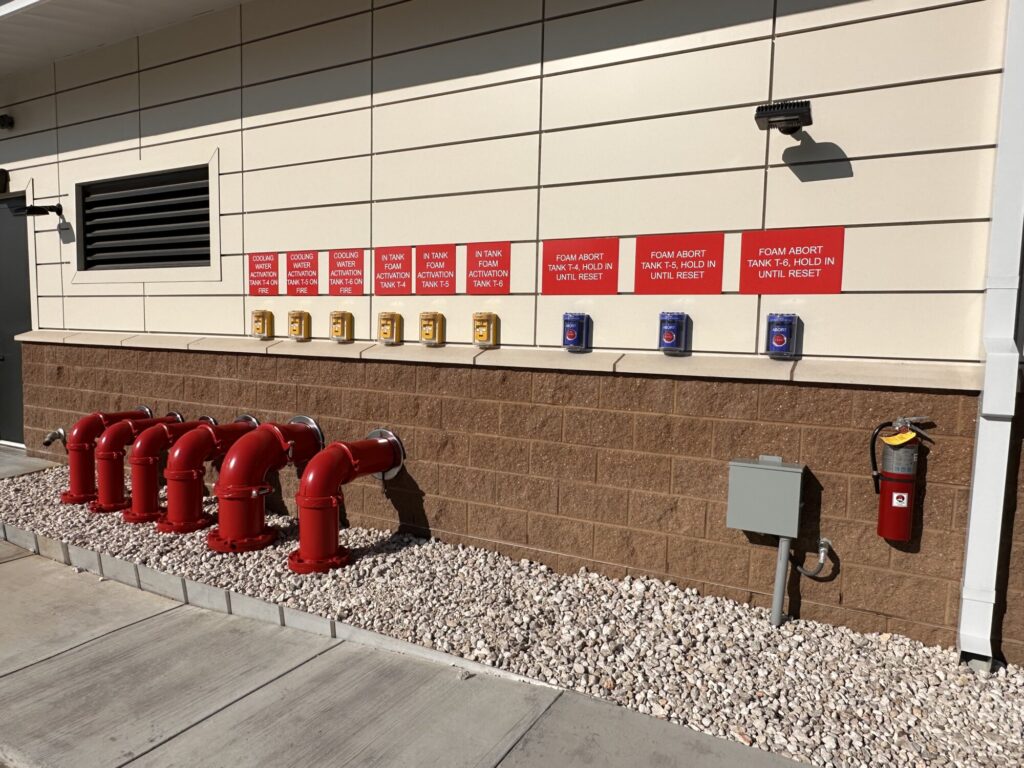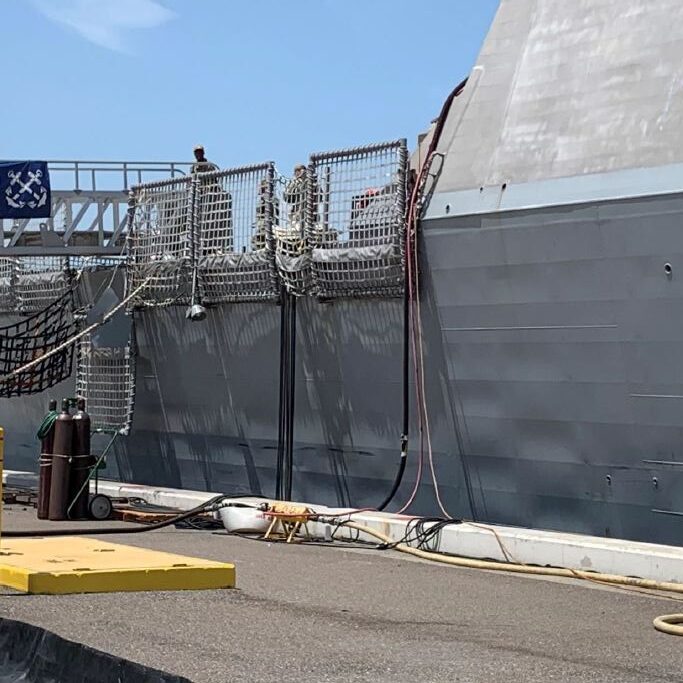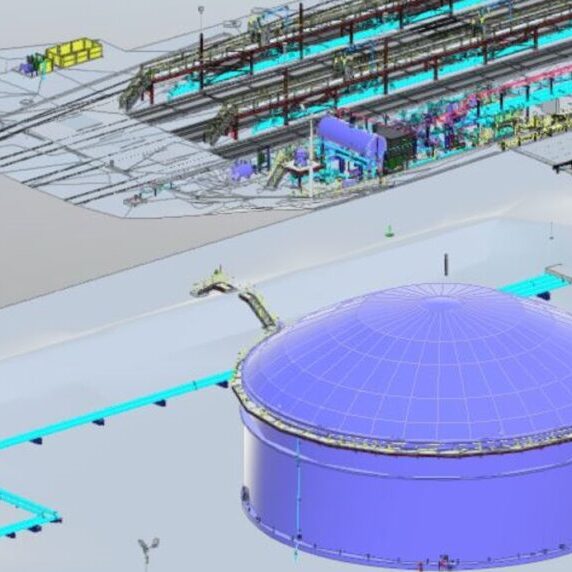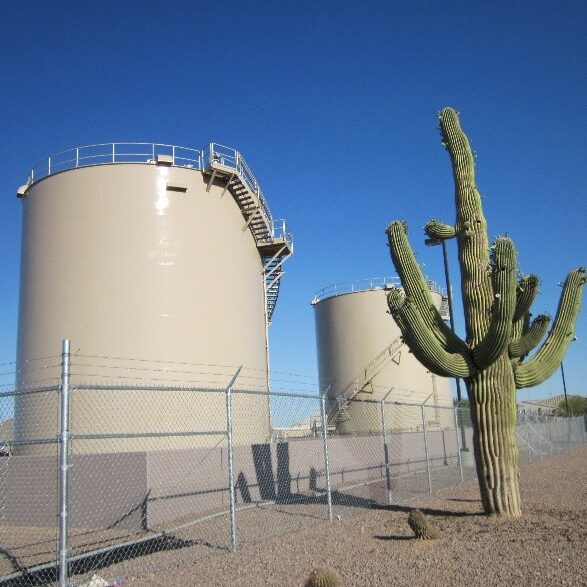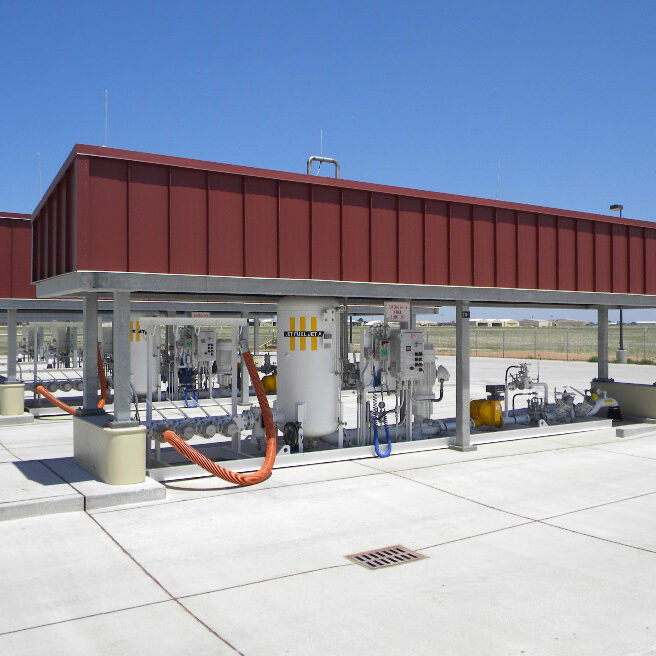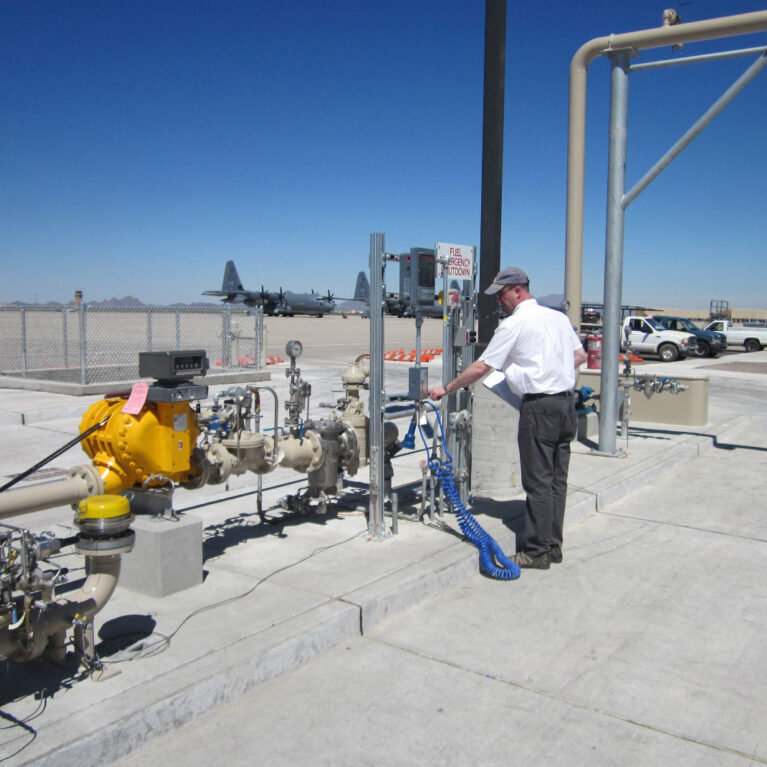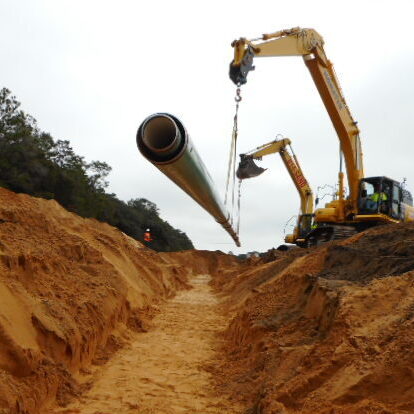William P. Hobby Airport (HOU) Fuel Storage Facilities and Pipeline Expansion
Significant Improvements for Efficient Fueling Operations
Argus provided comprehensive study, planning, design, bidding, permitting, construction support, and resident engineering services for 21st-century fuel delivery and storage facilities at the William P. Hobby Airport (HOU), the international airport located in Houston, TX, also known as Houston Hobby.
Opportunity
The pipeline delivery was terminated by its previous owner in 2013, which offered direct Jet-A fuel to HOU. This left the airport without a direct fuel supply and the necessary fuel storage reserve to support the airport’s daily traffic.
Southwest Airlines (Southwest) purchased the east fuel facility, immediately modified it to receive fuel into the facility via over-the-road trucks, and then issued the fuel via pipeline to the west fuel facility. While solving short-term needs, this modified system would be unable to support the long-term fuel capacity demands of the airline’s projected air traffic growth. This led Southwest to engage Argus Consulting in developing a more cost-effective and operationally beneficial solution.

Solution and Project Details
The solution was to develop a new fuel facility closer to the airport and demolish the existing farm for more efficient fuel delivery. The project included the construction of three (3) new 40,000-barrel storage tanks, a new 1.4-mile cross-airfield pipeline, directly tying into the existing pipeline receipt from the upstream fuel supplier Magellan Midstream Partners, a new building for administration, operations, and system controls, along with a stand-alone fire suppression system, and demolition of non-vital infrastructure in the east fuel facility.
Overcoming Obstacles in a More Than a Decade-Long Project
This project encountered several challenges throughout its lifespan, for example, the uncertainty of conditions brought by Hurricane Harvey including flooding on the build site, and an unpredictable global pandemic.
After several iterations of the project scope and approach impeded by the previously mentioned circumstances, the project was completed in January 2024.
Outcomes & Results
These project improvements helped Southwest in a variety of ways. From an operations standpoint, these fuel storage updates eliminate the need to own, maintain, and fully staff two separate facilities. Additionally, having the fuel storage closer to the airport apron simplifies the storage and delivery process.
This project was completed in partnership with multiple partners collaborating on all aspects of the project. A few industry partners include HNTB, Moye Consulting, KADLEC Associates, Jensen Hughes, Menzies Aviation, Magellan Midstream Partners (acquired by ONEOK), City of Houston, Hensel Phelps, Meccon Industries, among many others. Through this concerted effort, the airport now has four million gallons of jet fuel storage capacity, providing 18 days of fuel reserve to support Southwest’s increasing flight demand out of HOU, projected out to 2046, including new international flights.


